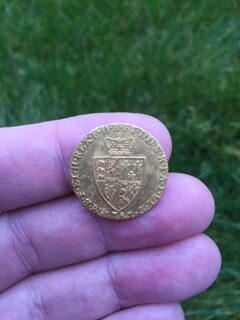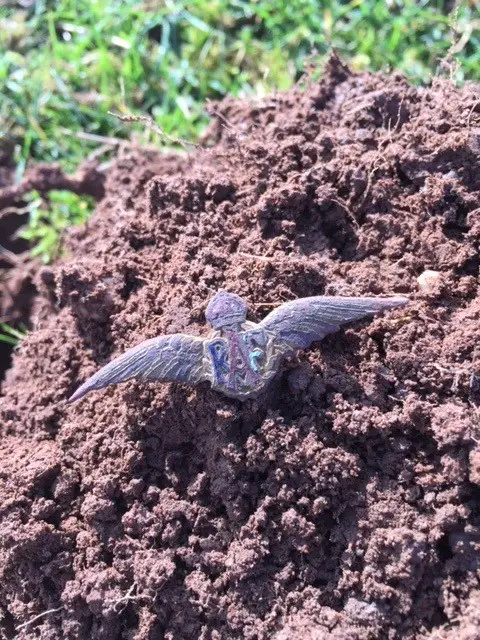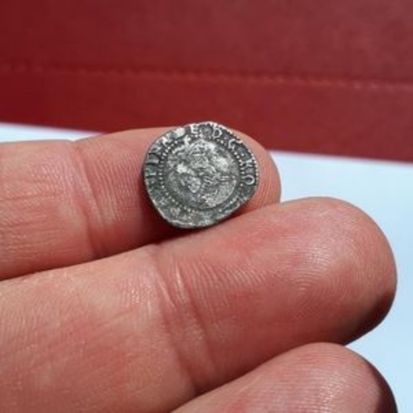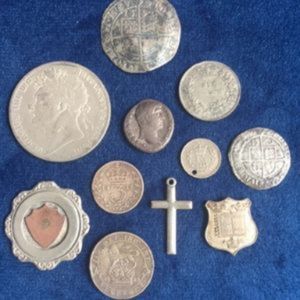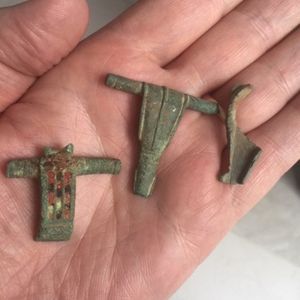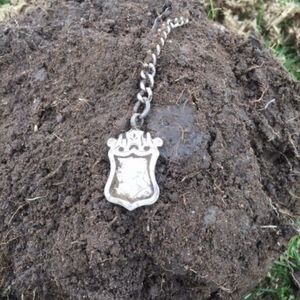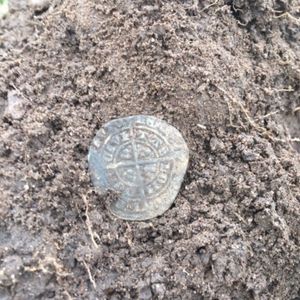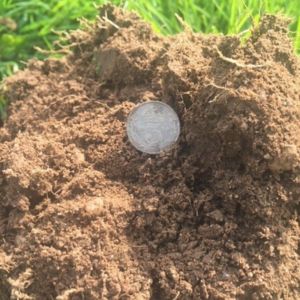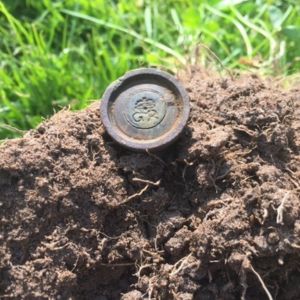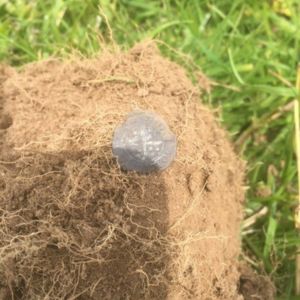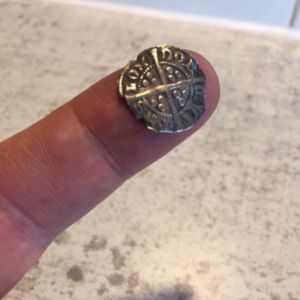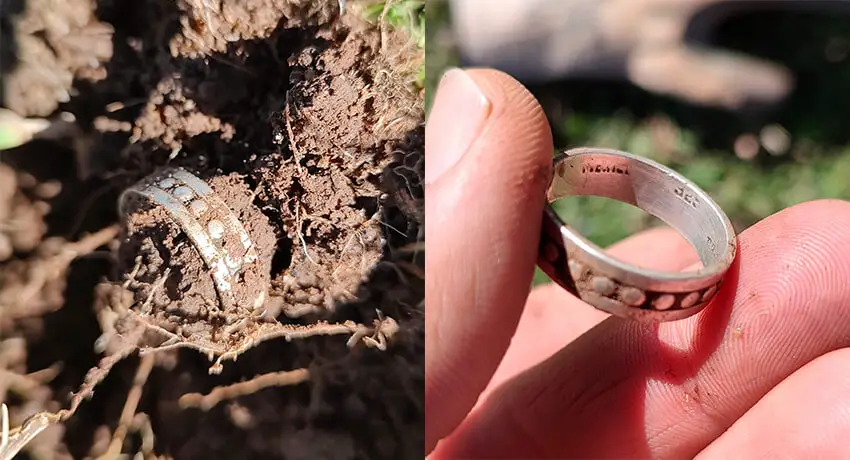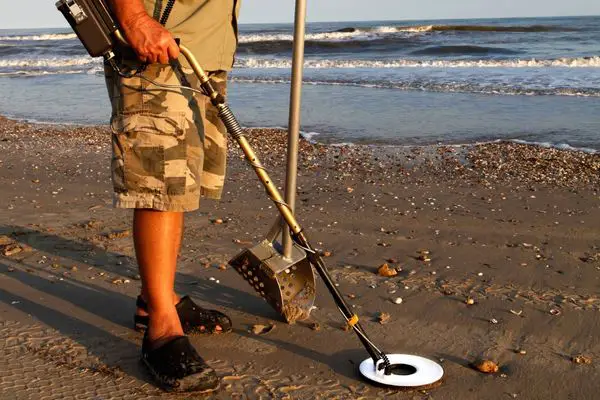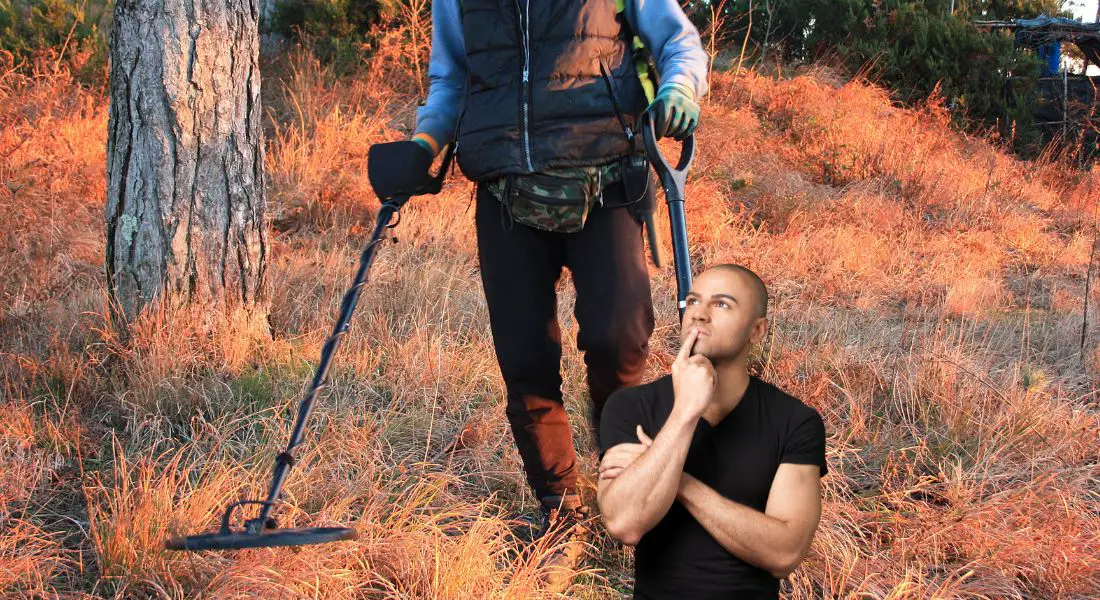Is rain good for metal detecting?
The simple answer is yes, it is perfectly fine to metal detect whilst it’s raining. The main things to think about are really if you’re comfortable to do so, you have the correct wet weather gear and that your metal detector has the appropriate wet weather rating.
Many people can be put off metal detecting in wet weather, either before during or after. So, before you decide not to venture out after looking at the weather forecast, it’s important to note that are inherent advantages to metal detecting in wet weather which we’ll discuss.
As long as you don’t feel uncomfortable going out in rain, it really is down to you. I personally have detected in rain many times.
You always have to anticipate the chance of rain and likewise, I’ve lost count of how many times I’ve been caught out in the middle of a huge field and ended up like a drowned rat!
The biggest consideration to think about is to protect your equipment. It may need additional help to prevent any water ingress. There are some top tips which we’ll also discuss.
Finally, we’ll discuss the technical advantages of metal detecting on wet or moist ground. Wet ground conditions can supercharge the detecting depth of most, if not all metal detectors!
One thing to say at this point is that there is a distinct difference to metal detecting in rain and metal detecting in a thunderstorm!
Safety first has to be the best policy and you do not want to be hit by lightning, however slim the chance of it is.
Secondly, the electrical nature of thunderstorms can in some cases cause a lot of interference to the way a metal detector operates.
This could totally render your day useless so if it’s this bad, you’ll probably want to call it a day!! Why not read my companion article discussing the benefits of metal detecting after a big storm here.
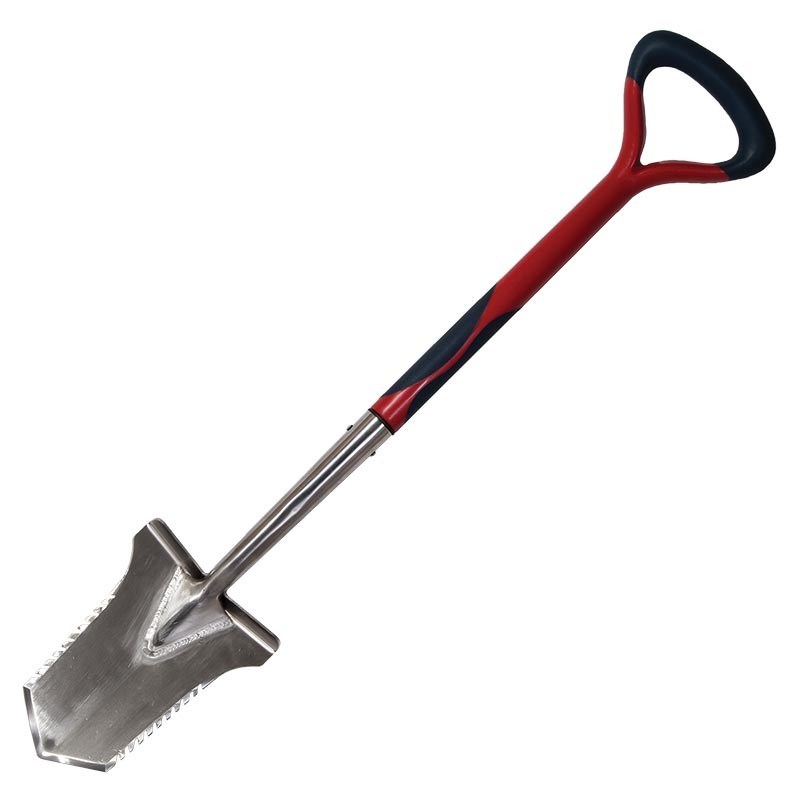
The Evolution Pro Cut
The ultimate accessary for the serious metal detectorist. Super strong, stainless steel specially designed spade.
Are metal detectors waterproof?
The short answer is that you MUST check the specification of your metal detector. Some detectors are defined as waterproof, some are defined as showerproof or rainproof.
Some older detectors may not even be rain or showerproof. Protection can be drastically improved by the use of a rain cover for the control box of your machine.
It’s generally good skills to purchase one of these anyway because it can prevent your screen and control box buttons from getting scratched, covered in mud and subsequently damaged.
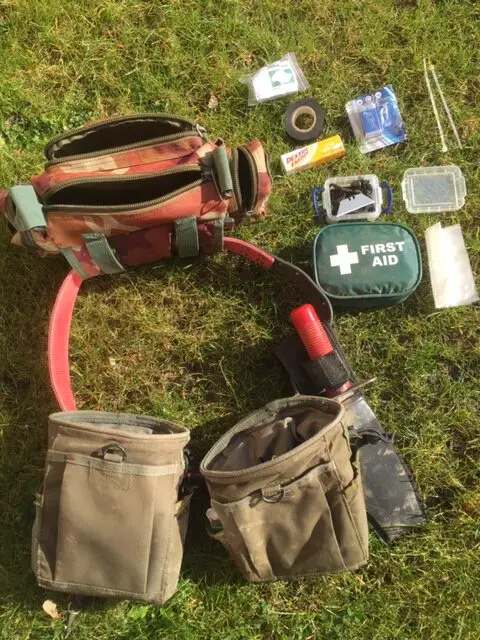
If funds are tight and you plan to get one at a later date, a top tip I always do is to have a couple of clear plastic bags in my utility belt pack.
The utility pack I have also carries spare parts, equipment, snacks and a drink. You can read my article on belt packs and metal detecting tips here.
In the outbreak of rain, you can quickly place the bag over the top of your control box preventing any water ingress.
Water ingress and sensitive electronics obviously don’t mix and could potentially cause an electrical short or fault.
The detector I currently use and couldn’t part with is a multi-frequency Minelab Equinox 800. This machine is actually submersible up to 3m or 10 feet deep….although I’ve never tried.
This gives me total peace of mind that no amount of rain will get inside it.
Another superb detector for entry level money is the Minelab Vanquish range of multi-frequency detectors. The Vanquish coils are waterproof up to 1m deep and the control box is water resistant.
So, if it gets rained on under normal conditions, it’s perfectly fine. It just means that can’t submerge it underwater which in most cases, you won’t.
You can further read my article on the Minelab Vanquish here and the Minelab Equinox here.

Unbeatable Multi Frequency!
You can now get the ultimate power of multi frequency technology over single frequency detectors with the Minelab Vanquish range of detectors.
The entry level Vanquish 340 now gives you ultimate depth, stability and sensitivity on all target types in every soil, including wet beach sand.
Are your headphones waterproof?
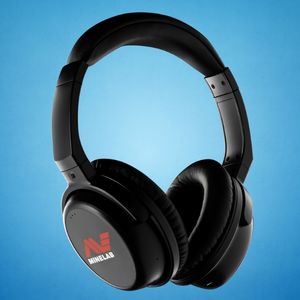
The same advice applies to your headphones. In most cases, your headphones won’t be fully waterproof, maybe just rain or shower proof but again, check the specification of them.
The top tip I can give you here is to ensure that your wet weather clothing, especially your jacket has a good hood.
Water ingress into headphones, as well as possibly causing an electrical “short”, can also make the internal cones wet.
This will massively impede the sounds that will come through. The rain hood will perfectly protect your headphones from any water ingress.
I have another article on some great choices of metal detecting clothing here. Detecting in the rain with it bouncing off hood can increase the ambient noise around you so you may have turn up the volume either on your headphones or detector.
I have an article on metal detecting wireless headphones here.
Is wet ground good for metal detecting?
That fact of the matter is, even though metal detecting in the rain can be uncomfortable and not ideal, there is a technical reason why detecting in wet conditions can benefit you.
Wet ground, as I alluded to earlier can supercharge your detector!

By supercharge, I mean that wet ground conducts massively better than dry ground in terms of an electromagnetic field.
(I have a great article on how detectors work and metal detecting discrimination here!) This is why an electric current passes through water with ease.
The benefit to the detectorist is that even the most modest metal detectors will most definitely gain from obtaining more depth as the electromagnetic field passes through the soil with reduced resistance.
This can help in finding those deeper more elusive targets.
The Halo effect
The second benefit comes from the induced “Halo” effect…..what’s that I hear you cry! Well, simply put, when a metallic object has been in the ground for long time, it creates an oxidised layer around it which can leach into the soil around it.
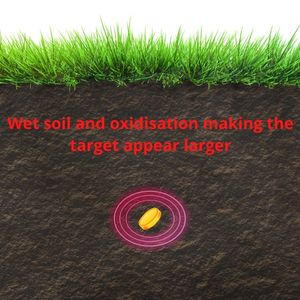
This leaching causes the target to appear larger to a metal detectors electromagnetic field and thus be more detectable.
In wet conditions, this makes the more conductive soil and the halo effect more pronounced.
Previously undetectable targets may now become detectable at greater depths. This is even more pronounced with lower frequency machines or multi frequency machines.
I have an article on the benefits of multi frequency metal detectors here.
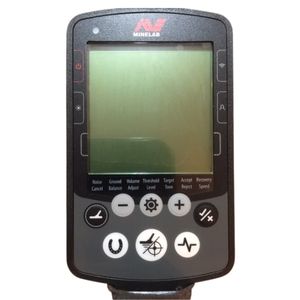
The Minelab Equinox 800
The ultimate and original multi frequency machine that has opened up a whole new world in detecting technology.
Deep detection and constant stable target identification.
You very often see this typically with iron where rusting, which is basically iron oxide will leach out and stain the soil around it making it look like a much larger target.
This can also cause “falsing” where an iron object may have totally rusted away, leaving the oxide in the soil behind it.
You may dig a signal only to find discoloured soil and no target. Falsing is also the term used for you when get good signals mixed with iron signals which this type of situation can cause.
You learn to tell these with experience. The interesting thing is, (and the most frustrating) is that when this halo is disturbed, typically by a shovel or trowel, it can cause a target to disappear or at least be more difficult to detect.
This is where a pinpointer comes in handy. (I have an article on metal detector pinpointers here.)
It must be remembered here, and the only drawback is that unwanted iron targets can also be massively pronounced along with the good targets!
Some subtle changes to your detectors settings may be needed on the day depending on conditions. (I have an article on metal detector settings here.)
Final thoughts
In this short article, we’ve talked about detecting during rain and the benefits of detecting after rain. In short, wet or moist soil can massively help a metal detector and increase its depth.
This is because a detectors electromagnetic field can travel through the soil better when it’s wet as it meets less resistance.
We’ve also talked briefly about the “halo” effect and how that can help by presenting the detector with a larger looking target from surrounding oxidation.
Checking the rating of your detector to resist water ingress is a great thing to carry out also.
A plastic bag can most certainly help in an emergency but keep an eye out for purpose made rain covers for your specific machine.
Similarly, check the rating of your headphones. Water ingress can cause the sensitive ear cones to get wet and impede sound vibrations.
A good jacket and hood can prevent this. I hope this article has been interesting and of help. Stay safe and happy hunting!
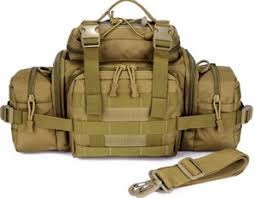
Ultimate Tactical Packs!
Carry everything you’ll need for a detecting day like a First Aid kit, detector spares, finds boxes, batteries, snacks and drinks to rehydrate.
Never forget anything again with a belt pack!



